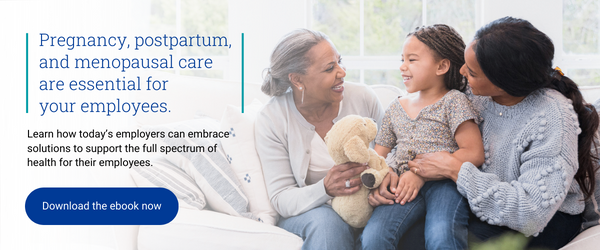Mentorship fosters collaboration between demographics
Whether you’ve tried their cookies or seen the green uniforms from afar, you’ve likely had some interaction with the Girl Scouts. But do you know about their legacy or the impact they have on communities? Their mission is to build girls of courage, confidence, and character who make the world a better place. Whether visiting an animal shelter, camping, hosting a dance-off, or filming a movie—they learn to take risks, trust their gut, and team up with others for good.
That’s why the Girl Scouts have a mentorship program, where they connect students with working professionals. Learn more from Lindsay Jubelt, MD, MS, Chief Population Health Officer at Mass General Brigham and Chief Medical Officer at Mass General Brigham Health Plan—who is currently mentoring a local high school student through this program.
Why is mentorship so important?
 Mentorship is so important for both mentees and mentors. It creates an opportunity for mentors to give back. It’s also a reminder that there's a lot that can be learned from people who are younger than you. They have different exposures, talents, and ways of seeing the world. For example, the first time I met my mentee, we had a whole chat about how I use ChatGPT. Then, she explained how she used it differently. I came up with many new ideas about how to use the tool to improve my life. She also shared books that high school kids are reading that I've been excited to dive into, to see the world through their eyes.
Mentorship is so important for both mentees and mentors. It creates an opportunity for mentors to give back. It’s also a reminder that there's a lot that can be learned from people who are younger than you. They have different exposures, talents, and ways of seeing the world. For example, the first time I met my mentee, we had a whole chat about how I use ChatGPT. Then, she explained how she used it differently. I came up with many new ideas about how to use the tool to improve my life. She also shared books that high school kids are reading that I've been excited to dive into, to see the world through their eyes.
My mentee is interested in healthcare, so I’m honored for the opportunity to help guide her into the industry so early on. She's already completed a radiology internship with Mass General Brigham, so she has exposure to the health delivery system. She is going to college next year, so this is such a pivotal transition for her. It was a perfect time to connect with each other and offer some perspective on the many career opportunities she could explore within the healthcare industry. That includes some of the collaborative work we’re doing within the health plan and the health system.
For example, we're making inroads in terms of serving our members at Mass General Brigham Health Plan. I’m able to explain how we’re building a new care model for people who are dual-eligible for Medicare and Medicaid and how their needs are different. So, with their different needs, we're working on reconstructing both the plan and delivery systems. The goal is to provide offerings that fit their unique needs. My mentee was excited to hear about this work and didn’t realize how creative work can be within this industry. She got really inspired by it.
What do you accomplish in your mentoring sessions?
My mentor and I try to meet monthly. Sometimes, we meet for coffee in person. Other times, we meet over Zoom or the phone. During our next session, we'll work on her professional bio. Having this on hand will make it easy for others to introduce her and help expand her network. As a high school student, this is all new. So, I’m excited to have a session focused on personal brand. The outcome will be a brief bio that she can share when networking and utilize during outreach opportunities.
What advice would you share with someone considering a mentorship program?
 If you’re thinking about mentorship, start thinking about expectations. Ask yourself what you want out of it, whether you're the mentor or the mentee. If possible, interview each other beforehand to evaluate whether it’s a good match. It’s okay to have a conversation to see if your interests are aligned. Having that conversation allows you to determine if it’s a good fit. It's a commitment, and you're hoping both sides want it to work.
If you’re thinking about mentorship, start thinking about expectations. Ask yourself what you want out of it, whether you're the mentor or the mentee. If possible, interview each other beforehand to evaluate whether it’s a good match. It’s okay to have a conversation to see if your interests are aligned. Having that conversation allows you to determine if it’s a good fit. It's a commitment, and you're hoping both sides want it to work.
How do you think mentorship fosters collaboration within the healthcare industry?
Mentorship can help match people who don't necessarily work together on a day-to-day basis to get to know one another better and help foster connections outside of the typical work environment. It can also create advancement opportunities while building confidence and relationships. As a female leader, I find it critical to lead by example by supporting these types of opportunities.
After meeting my mentee, I shared my expectations. I was looking for a mentee that I could work with for at least a few years. She then shared that she had a similar expectation. She’s also going to college locally, so that’ll help us stay connected. So, hopefully, we’ll be continuing this for a long time.
I’ve provided value for my mentee simply with advice. For example, I’ve been able to preview for her what’s to come with the transition from high school to college. She hasn’t been down this road before, but I have. I can help her prepare by helping build her networking skills. We’re having discussions about what to expect and how to set herself up for success.
What has this mentorship meant to you?
 It’s been a great reminder that there are opportunities within our professional worlds to collaborate with all sorts of organizations and have young people looking for advice. Thus far, this experience has opened my eyes. It’s motivated me to think about how to find more of those connections for my team. Working with students brings life to all of us. That energy can be soul-filling, and sometimes, in the daily grind, you just need a break from it to something that is kind of a bright moment in a different way.
It’s been a great reminder that there are opportunities within our professional worlds to collaborate with all sorts of organizations and have young people looking for advice. Thus far, this experience has opened my eyes. It’s motivated me to think about how to find more of those connections for my team. Working with students brings life to all of us. That energy can be soul-filling, and sometimes, in the daily grind, you just need a break from it to something that is kind of a bright moment in a different way.
I was reading this article by Raj Chetty, who does extensive research on poverty. He found that when you look at social mobility in this country, there are many different things that you hope might make a difference. A major takeaway from his research was that if you have a deep connection to someone from a different socioeconomic group from you—you’re more likely to move up the socioeconomic ladder.
How powerful could that be if we all took an interest in one person outside of our immediate social environments, perhaps someone from a lower-income community, and really invested in that person? We could have a massive impact on the world around us. So, I look forward to expanding our efforts to participate in that change in small and big ways at Mass General Brigham.
Learn more about how Mass General Brigham is creating work opportunities for students in the Boston area.
Stay connected with Mass General Brigham Health Plan by following @MGBHealthPlan on Instagram, LinkedIn, and Facebook.

